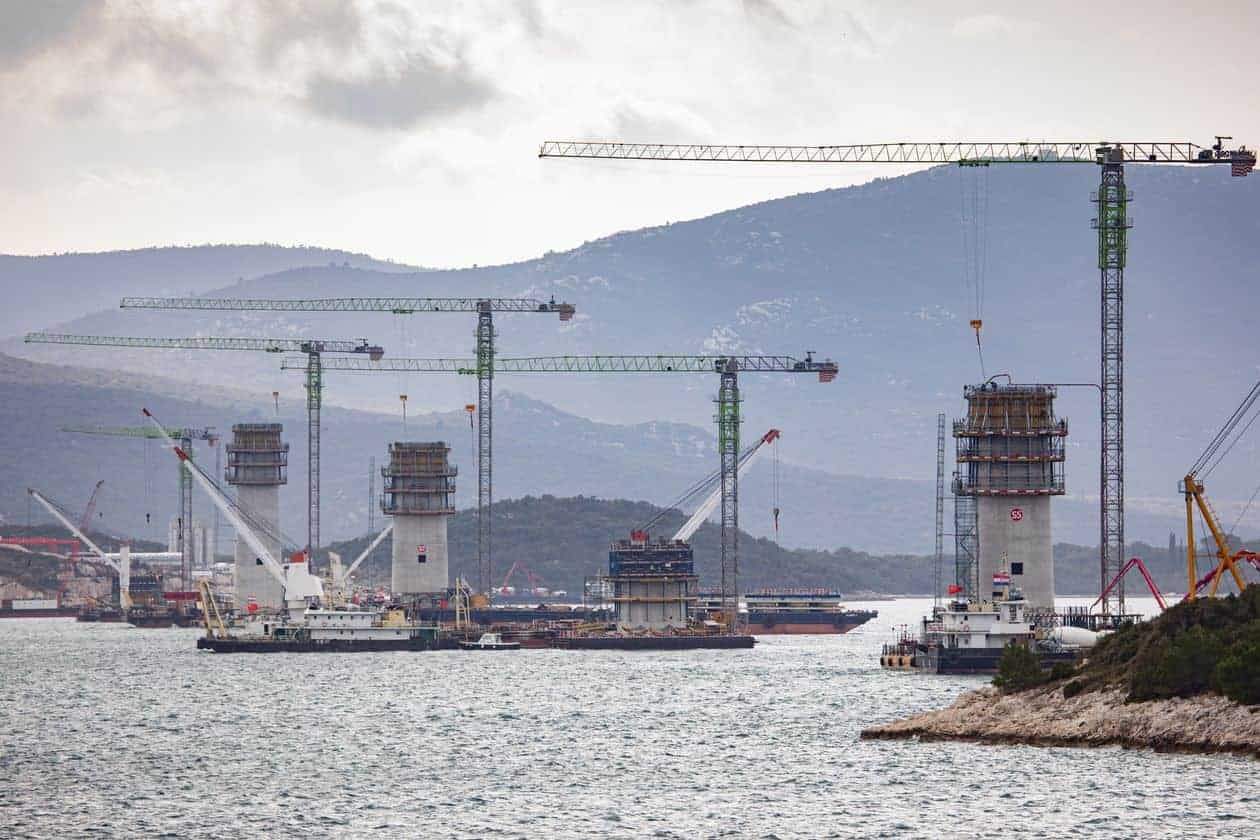EU Moves to Shrink Chinese, U.S. Influence in Its Economy

The European Union plans to tighten its defenses against subsidized foreign companies, marking a sharp increase in the bloc’s effort to assert “strategic autonomy” from China and the U.S. while defending its economic interests.
The European Commission, the EU’s executive body and top antitrust enforcer, on Wednesday outlined options to redress what it described as market distortions stemming from state-subsidized foreign firms. The proposals aim to prevent foreign companies that have received significant grants, loans, tax credits or other forms of state aid from acquiring European companies or competing with them for certain contracts inside the EU.
Many observers see the action as aimed at state-owned Chinese companies, but it could also affect European rivals from the U.S.
The proposed restrictions were put forward after several European countries, including France, Germany and Italy, tightened their foreign-investment scrutiny in a bid to protect companies reeling from the coronavirus-induced economic crisis from being scooped up by Chinese and U.S. investors. The proposals also fit changing attitudes in the EU over the past year toward China, which the bloc has labeled an economic and political rival.
“We need the right tools to ensure that foreign subsidies do not distort our market, just as we do with national subsidies,” said European Commission Vice-President Margrethe Vestager, in charge of competition and digital policy.
The coronavirus pandemic has exposed the bloc’s reliance on Chinese imports in the medical sector, with countries scrambling for masks and medical devices and even taking the unprecedented step of temporarily banning exports to other European nations in need to keep their own hospitals supplied. This has prompted a rethink of investment policies in Europe. “The level playing field in the single market is at the heart of this initiative and will help our companies operate and compete globally and thus promote the EU’s open strategic autonomy,” said Thierry Breton, the EU’s internal market commissioner.
The commission on Monday took the unprecedented step of slapping punitive tariffs on Chinese exporters based outside mainland China. Two Egyptian subsidiaries of glass-fiber producers China Jushi Co. Ltd. and Zhejiang Hengshi Fiberglass Fabrics Co. Ltd. were found to have received state subsidies to undercut European competitors.
EU officials insist that the new tools don’t target one country or one single type of subsidy. China’s subsidies to its own companies will be as scrutinized as financial aid that U.S. companies benefit from such as loan guarantees, the bloc’s officials said.
Under the new proposals, the commission envisages cooperating with EU national competition authorities to scrutinize any foreign companies potentially relying on state aid to undercut their European competitors. If market distortions are found, companies can be ordered to repay the subsidies, sell assets or open access to a licensed technology to European competitors. Both national authorities and the commission would have the power to request documents and fine noncompliant companies.
Extra scrutiny would also be directed toward the role of subsidies in acquisitions, on top of existing merger rules and foreign investment screening. This could potentially complicate companies’ plans to buy European assets, as it would add an extra layer of notification requirements for acquisitions.
The new proposals state that any company that in the three years before the acquisition received any type of state aid outside the EU would have to notify that to the European Commission, which would then decide whether the transaction can proceed and if any conditions such as divesting assets should be imposed. The notification requirement would apply for transactions over €100 million and the commission leaves open the possibility for it to be triggered also for acquisitions of stakes less than an outright takeover.
“This is highly controversial,” said Jay Modrall, a partner specialized in competition with Norton Rose Fulbright LLP. “It’s not obvious how this will work, on top of merger and FDI rules,” he said, referring to foreign direct investment.
A third area of scrutiny would apply to public procurement, where the commission seeks to “fill a regulatory gap” currently allowing foreign state-backed companies to win public tenders with bids below those of European competitors. The scrutiny would cover national and EU-funded projects.
One EU official said a wake-up call was the awarding in 2018 to state-owned China Road and Bridge Corp. an EU-funded contract to build a $500 million-bridge in Croatia. Losing EU bidders challenged the award in court but lost.
“We’re trying to prevent this from happening again,” the official said. Under the proposal, national regulators would have the power to ban heavily-subsidized companies that undercut their EU rivals from ongoing and future tenders for a certain period.
The proposals are still subject to approval by national governments, but several capitals, including Paris, Berlin, Warsaw and Rome in recent weeks have formulated similar ideas, suggesting that agreement on the new rules might come soon, with the commission planning to put forward legislation next year.
Some countries welcomed the proposals but called for them to go even further. Mona Keijzer, Dutch state secretary for economic affairs, said that she sees room for improvement, “for instance via more extensive and stricter oversight on companies that have an unregulated, dominant position in their home markets.”
Mr. Modrall noted that in 2017, the commission took a very cautious approach in proposing an FDI screening framework that saw only a coordinating role for the commission when governments scrutinize acquisitions of strategic assets by Chinese and other foreign entities. “This seems to be a second bite at the apple regarding FDI screening,” Mr. Modrall said. “It’s reflective of how the political climate has changed since.”
Photo: A Chinese consortium led by China Road and Bridge Corporation won the bid for the first phase of the Peljesac bridge, near Komarna, Croatia and its access roads in 2018. - GRGO JELAVIC/ZUMA PRESS











